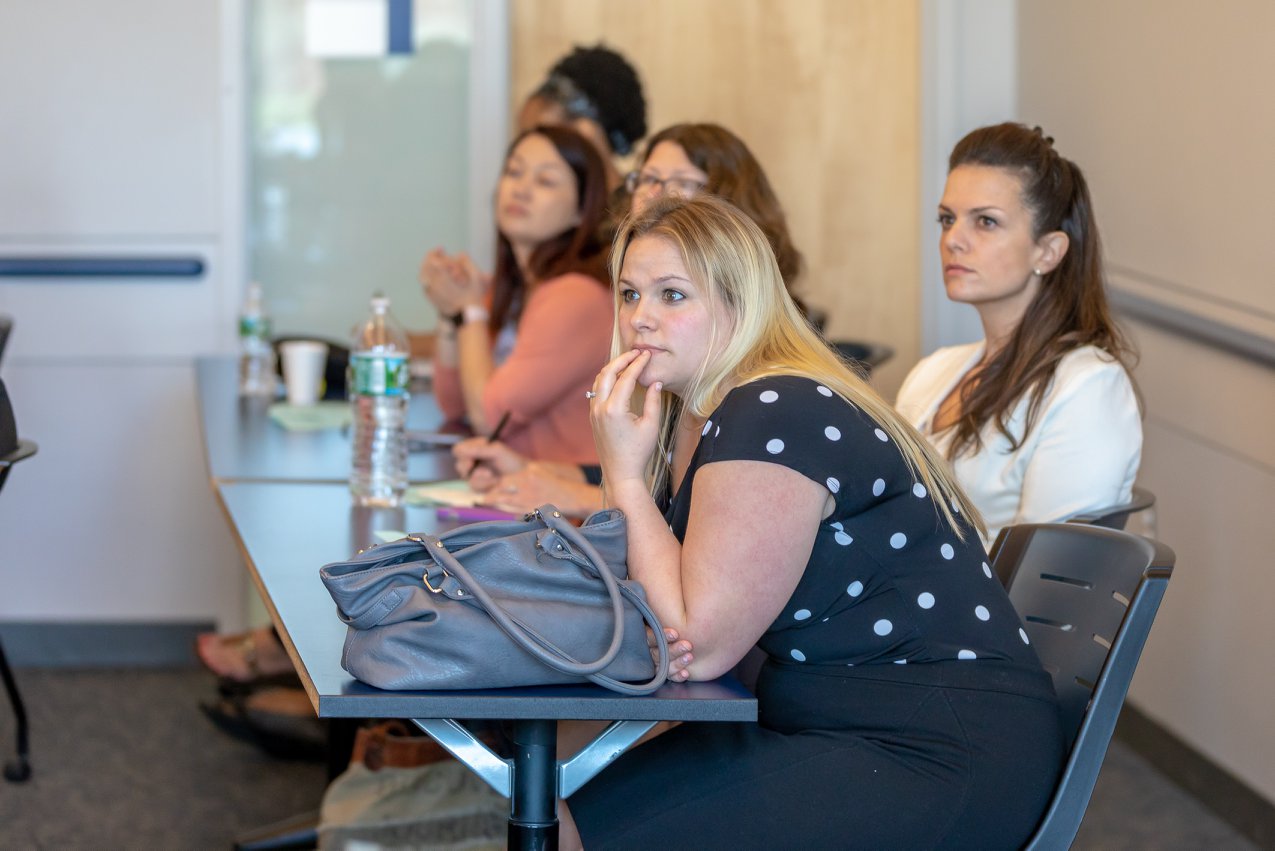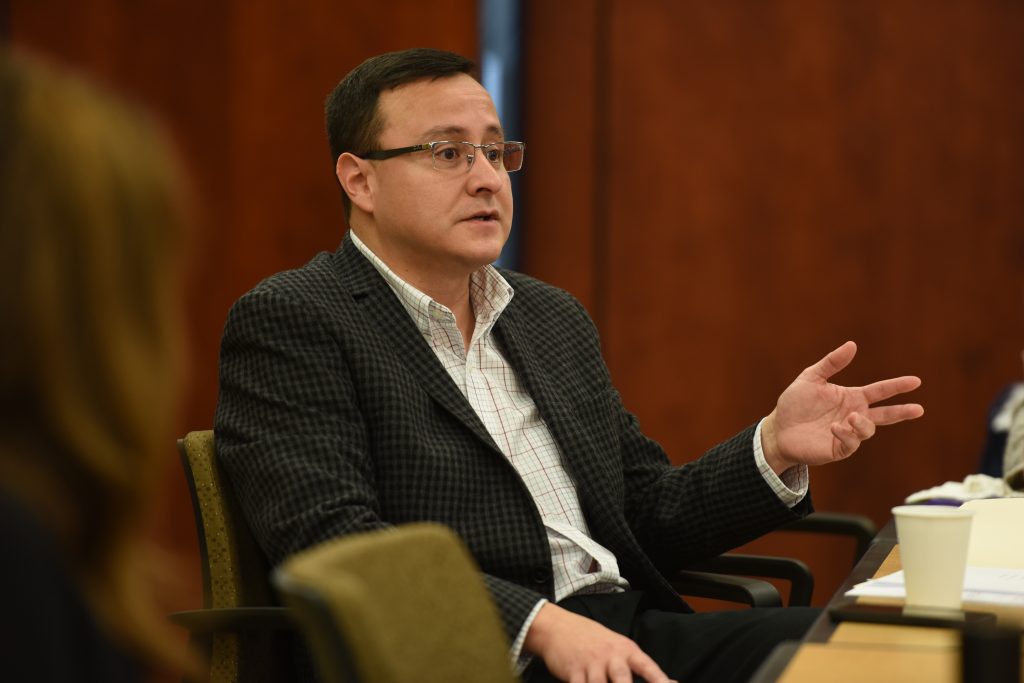 On September 25, 2018, the University of Connecticut Administrator Preparation Program (UCAPP) will begin its 4th annual series of UCAPP workshops. UCAPP workshops are designed to supplement UCAPP’s core curriculum by offering extensions to UCAPP’s current principal preparation program courses and internship opportunities.
On September 25, 2018, the University of Connecticut Administrator Preparation Program (UCAPP) will begin its 4th annual series of UCAPP workshops. UCAPP workshops are designed to supplement UCAPP’s core curriculum by offering extensions to UCAPP’s current principal preparation program courses and internship opportunities.
The first two UCAPP workshops of the 2018-2019 school year will be held next week in New Haven, CT, and Hartford, CT. These UCAPP workshops, called ‘Core Values, Mission, and Vision + Budget’ first will challenge aspiring UCAPP Leaders to identify their own core values and beliefs about educational leadership.
Next, students will work in small groups of aspiring elementary principals at ‘Neag Elementary School’ and aspiring high school principals at ‘Neag High School’ to simulate the development of each school’s vision and mission statements. These vision and mission statements will be based on simulated school data and budget considerations developed by the UCAPP Workshops planning team.
Although UCAPP workshops are optional for students, each one provides a collaborative, hands-on adult learning experience utilizing authentic case studies, real data, artifacts and documents, and simulations. The process to create and develop the UCAPP workshop structure aligns closely with the Carnegie Foundation’s improvement science process. Specifically, UCAPP utilized the Plan-Do-Study-Act (PDSA) inquiry method in improvement science to address identified gaps in UCAPP’s ever-evolving core curriculum.
The UCAPP workshop model fills gaps between iterations of UCAPP’s core curriculum, and provide flexibility for the program to respond to student needs quickly and intentionally as standards, innovations, and policies emerge within the profession. Such stop-gap practices also support the program’s other processes to develop enhancements for continuous improvement between iterations of the core curriculum. In fact, since the implementation of the UCAPP workshop model, curriculum gaps identified by the program and filled by workshops are now leading to more permanent enhancements to continuously improve both the curriculum and student internship as part of the UCAPP’s elective redesign process.
“UCAPP Workshops fill gaps between iterations of our core curriculum, and provide flexibility for the program to respond to student needs quickly and intentionally as standards, innovations, and policies emerge within the profession.”
- Jonathan Carter, 3rd-year doctoral student
The workshop planning team consists of UCAPP’s current graduate assistant, Jonathan Carter, who is in his 3rd-year of his doctoral degree, UCAPP’s Program Coordinator, Joanne Manginelli and UConn’s Director of Educational Leadership Preparation Programs, Dr. Richard Gonzales.
The team constantly monitors ongoing shifts in the educational leadership field to strategically incorporate new UCAPP workshops into the academic calendar. UCAPP Workshops for 2018-2019 include the expansion of its popular career planning webinars, culminating with the 3rd Annual Mock Interview Day in two locations over two separate dates. Other new UCAPP workshops events for 2018-2019 include a series of Connecticut Administrator Test (CAT) study sessions led by EDLR’s Dr. Jennie Weiner and sessions facilitated by Dr. Chip Dumais on School Safety & Crisis Management and Social Media.
The 2018-19 UCAPP workshops will offer second-year students an innovative new series of five webinars on “Cultural Responsiveness.” These webinars will explore what it means for each of our aspiring school leaders to be a culturally responsive leader today.

Looking ahead, first-year students can choose to participate in the following UCAPP Workshops:
- Core Values, Vision, and Mission
- Professional Learning Planning
- PPT / Special Education
- SRBI
- Talent Management
- Situational Leadership (Culture & Climate)
- Situational Leadership (Family & Community Engagement)
Second-year UCAPP Leaders will have additional opportunities to further supplement their leadership preparation through these targeted workshops:
- Career Planning
- CAT/ELAS Preparation
- School Safety & Crisis Management
- Social Media
We look forward to the continued success of the UCAPP Workshops series, and encourage interested parties to visit UCAPP Workshops for more information or to register for an upcoming event.